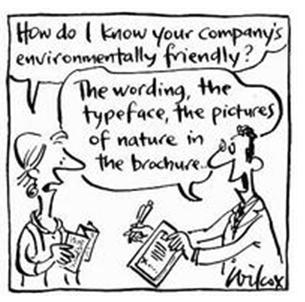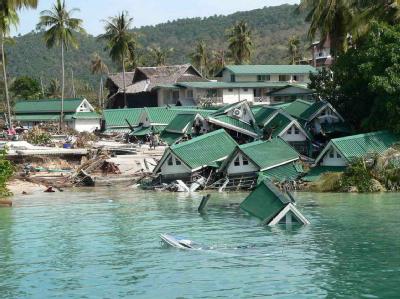These days, the environmental discourse is dominated by the paramount topic of climate change and how to fight it. Most conferences, summits and informal gatherings revolve around it in one way or another.
The significance of non-state actors in these kinds of negotiations is especially intriguing due to its omnipresence. While I would not (yet) argue for the complete end of the primacy of states, “diplomacy now involves many more participants who are experts in matters other than diplomacy and hold their position outside foreign ministries”(1). This is especially true for environmental negotiations, for most of the problems transcend the borders of states and thus fall into the realms of non-state actors with a claim to represent the civil society as a whole, which is not properly represented by the states.
First, however, who are those non-state actors?
They can be subdivided into three categories: Business groups, environmental non-governmental organizations (ENGOs) and the media.
Business groups have a variety of ways to influence negotiations and have played advisory roles to governments or even sponsored big media campaigns, based on self-sponsored scientific research, which involved TV , radio and newspaper advertisements and even public speeches. In the early days of the climate change discourse those efforts were aimed purely at discrediting proof for climate change or lobbying against the Kyoto Protocol and the like, outlining how bad emission cuts are and how they could ruin the economy and trade competi-tiveness. Especially notorious was the Global Climate Coalition. However, business groups are not a monolithic bloc and in recent years some have changed their tune, now recognizing the potential dangers of climate change and instead advertising their efforts to contribute to fighting it(2). This however has been harshly criticized by ENGOs as ‘Green-washing’ (See Greenpeace: Change your act, not your image).
, radio and newspaper advertisements and even public speeches. In the early days of the climate change discourse those efforts were aimed purely at discrediting proof for climate change or lobbying against the Kyoto Protocol and the like, outlining how bad emission cuts are and how they could ruin the economy and trade competi-tiveness. Especially notorious was the Global Climate Coalition. However, business groups are not a monolithic bloc and in recent years some have changed their tune, now recognizing the potential dangers of climate change and instead advertising their efforts to contribute to fighting it(2). This however has been harshly criticized by ENGOs as ‘Green-washing’ (See Greenpeace: Change your act, not your image).
The significance of non-state actors in these kinds of negotiations is especially intriguing due to its omnipresence. While I would not (yet) argue for the complete end of the primacy of states, “diplomacy now involves many more participants who are experts in matters other than diplomacy and hold their position outside foreign ministries”(1). This is especially true for environmental negotiations, for most of the problems transcend the borders of states and thus fall into the realms of non-state actors with a claim to represent the civil society as a whole, which is not properly represented by the states.
First, however, who are those non-state actors?
They can be subdivided into three categories: Business groups, environmental non-governmental organizations (ENGOs) and the media.
Business groups have a variety of ways to influence negotiations and have played advisory roles to governments or even sponsored big media campaigns, based on self-sponsored scientific research, which involved TV
 , radio and newspaper advertisements and even public speeches. In the early days of the climate change discourse those efforts were aimed purely at discrediting proof for climate change or lobbying against the Kyoto Protocol and the like, outlining how bad emission cuts are and how they could ruin the economy and trade competi-tiveness. Especially notorious was the Global Climate Coalition. However, business groups are not a monolithic bloc and in recent years some have changed their tune, now recognizing the potential dangers of climate change and instead advertising their efforts to contribute to fighting it(2). This however has been harshly criticized by ENGOs as ‘Green-washing’ (See Greenpeace: Change your act, not your image).
, radio and newspaper advertisements and even public speeches. In the early days of the climate change discourse those efforts were aimed purely at discrediting proof for climate change or lobbying against the Kyoto Protocol and the like, outlining how bad emission cuts are and how they could ruin the economy and trade competi-tiveness. Especially notorious was the Global Climate Coalition. However, business groups are not a monolithic bloc and in recent years some have changed their tune, now recognizing the potential dangers of climate change and instead advertising their efforts to contribute to fighting it(2). This however has been harshly criticized by ENGOs as ‘Green-washing’ (See Greenpeace: Change your act, not your image).The engagement of ENGOs has continuously grown since the Rio Summit and more and more varied ENGOs attend the big environmental events. Plus, the relationship between NGOs and formal negotiators and governments has become more and more mutually supportive (as always, with exceptions!). From ENGOs from the North and South, to student, religious or local groups, sometimes united in cooperation under the Climate Action Network, they all have a number of significant ways to influence negotiations.
They can either participate in the formal negotiations as observers or, now more and more common, as advisors to delegates or full members of national delegations. Due to their specific knowledge of the subject they can provide expert scientific, legal or policy advice.(3)
Another column of ENGO work is that of research-based think-tanks, which develop creative solutions and alternatives outside the formal processes. This activity can range from the publication of scientific reports to the organization of side events with presentations, talks and debates. This enriches the discussion by providing analyses, research and alternative solutions. And can go as far as staging a parallel conference to the Copenhagen Summit, which was even attended by some delegates. Furthermore they can be active as campaigners and create pressure on the negotiators through demos, protests and rallies. (4)
Lastly, one of the greatest skills of ENGOs is the interaction with the media and the expert use of new information technologies. By eagerly giving interviews and providing back-ground material they raise public awareness and achieve that those publications, often featuring details of corridor discussions and biting commentary, were directly distributed to the officials at the negotiations. A great example of the use of new technologies and the impressive responsiveness of ENGOS was Oxfam’s rapid response system during the Cancun Conference. Through these actions they help maintain the momentum and exert a lot of pressure to act on delegates in negotiations.
They can either participate in the formal negotiations as observers or, now more and more common, as advisors to delegates or full members of national delegations. Due to their specific knowledge of the subject they can provide expert scientific, legal or policy advice.(3)
Another column of ENGO work is that of research-based think-tanks, which develop creative solutions and alternatives outside the formal processes. This activity can range from the publication of scientific reports to the organization of side events with presentations, talks and debates. This enriches the discussion by providing analyses, research and alternative solutions. And can go as far as staging a parallel conference to the Copenhagen Summit, which was even attended by some delegates. Furthermore they can be active as campaigners and create pressure on the negotiators through demos, protests and rallies. (4)
Lastly, one of the greatest skills of ENGOs is the interaction with the media and the expert use of new information technologies. By eagerly giving interviews and providing back-ground material they raise public awareness and achieve that those publications, often featuring details of corridor discussions and biting commentary, were directly distributed to the officials at the negotiations. A great example of the use of new technologies and the impressive responsiveness of ENGOS was Oxfam’s rapid response system during the Cancun Conference. Through these actions they help maintain the momentum and exert a lot of pressure to act on delegates in negotiations.

Lastly, the media. While articles about the environment and climate change had to be searched for in a newspaper just some 20 years ago, the media now features big articles about environmental issues on a regular basis, even outside of great events like the climate summits, and some have dedicated whole sections to the environment. Also, it was first and foremost the media which started linking phenomena of extreme weather to climate change and thus paved the way for governments to openly admit that climate change might indeed be happening and that something needs to be done about it (which most do nowadays, but two decades ago, that was revolutionary!). (2)
To sum up, through those very diverse ways of influence, from advocacy to policy research, from the raising of awareness to exerting pressure, from lobbying to expert advising, most non-state actors have a very significant impact on negotiations. Even though their efforts may not always translate into reliable actions or make their way into the finished treaties, “the most profound enemies of progress on global climate change are not scientific skeptics or well-funded industry opponents, but general misunderstanding and apathy regarding issues and policies at stake.”(2)And it is exactly this enemy that non-state actors usually fight!
(1) Langhorne, R 'Diplomacy of Non-State Actors' in Diplomacy and
Statecraft, Vol. 16, No.2, 2005
(2) Carpenter, C., ‘Businesses, Green Groups and the Media: The Role of Non-Governmental Organizations in the Climate Change Debate’ in International Affairs, Vol. 77, No. 2, 2001
(3) Atiq Rahman and Annie Roncerel, "A view from the ground up" in I. M. Mintzer and J.A. Leonard (eds), Negotiating Climate Change: the inside story of the Rio Convention
(4)Gough, C. & S Shackley, ‘The Respectable Politics of Climate Change: The Epistemic Com-munities and NGOs’ in International Affairs, Vol. 77, No. 2, 2001
No comments:
Post a Comment